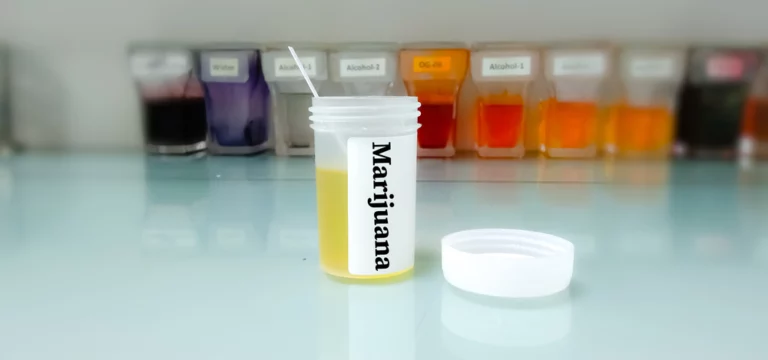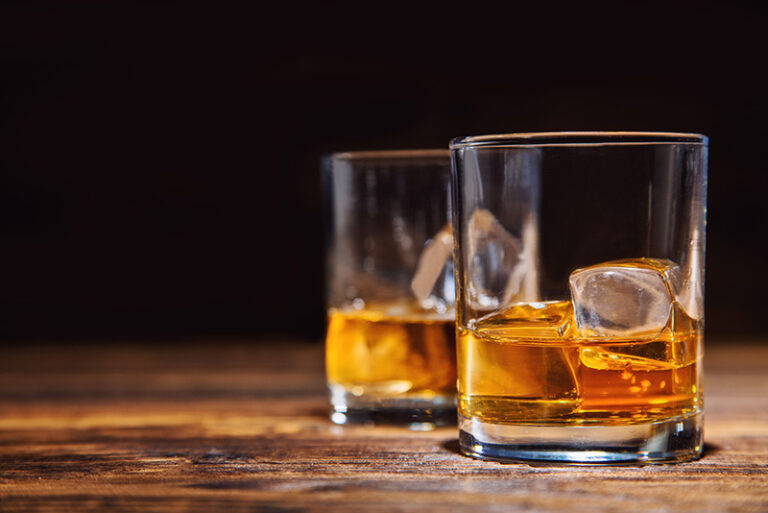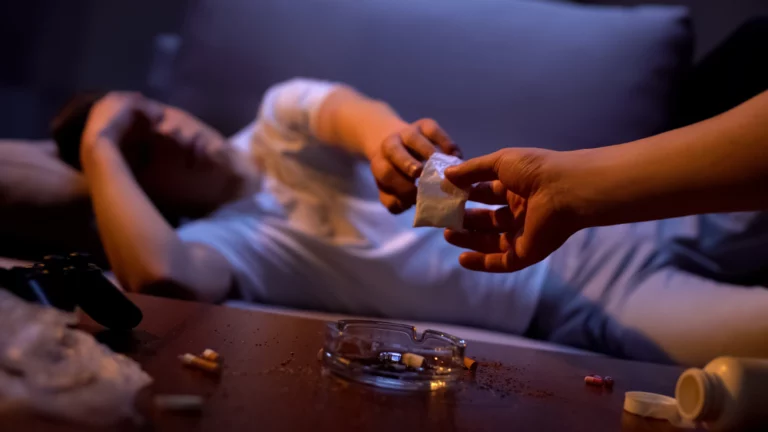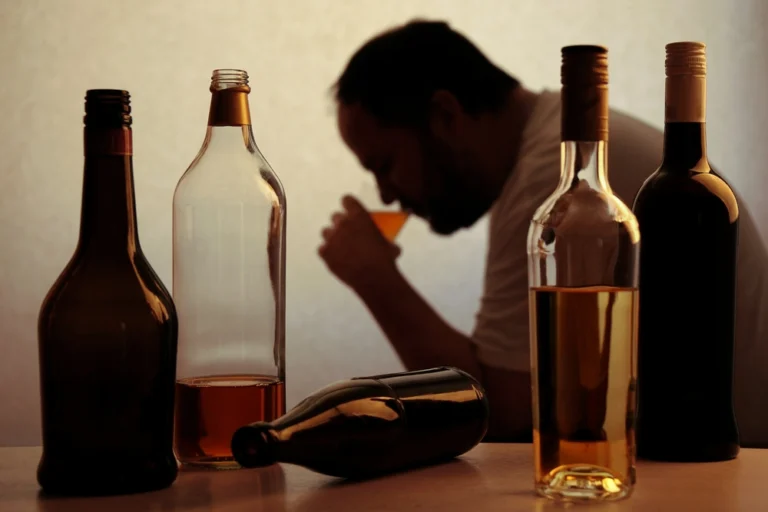Alcohol Hallucinations: Signs, Causes, And Treatment
If you want to know the signs and causes of alcohol hallucinations, this is the article for you. There are many dangerous withdrawal symptoms that occur if someone abruptly stops drinking alcohol. One of the lesser-known symptoms that deserve more awareness is alcohol-induced hallucinations. Once you finish this short blog, you’ll know what causes these hallucinations, what can worsen them, and how to treat them.
What Are Alcohol-Induced Hallucinations?
Alcohol hallucinations, known scientifically as alcoholic hallucinosis, are a rare symptom of chronic alcohol abuse consisting of mainly verbal or auditory hallucinations that occur either during or following a period of heavy alcohol consumption. These hallucinations can be accompanied by delusions and mood disturbances even while a person is sober, mimicking thought disorders like schizophrenia.
According to the U.S. National Library of Medicine, alcohol hallucinations typically emerge 12 to 24 hours after someone stops heavy drinking and only occur in 0.6 to 0.7% of individuals with alcohol use disorders (AUD). Usually, hallucinations occur after various initial symptoms of alcohol withdrawal. These include headaches, dizziness, irritability, insomnia, and general discomfort.
Read more: How to Get Sober in Louisville: 11 Tips

What Causes Alcohol Hallucinations?
The exact cause of alcohol hallucinations is not fully understood. Still, they are believed to be associated with a combination of factors related to alcohol abuse and its effects on the brain. Here are some possible causes.
- Alcohol withdrawal: Hallucinations can occur during the withdrawal phase when someone abruptly stops or significantly reduces their alcohol intake after prolonged heavy drinking.
- Neurochemical imbalances: Chronic alcohol abuse can disrupt the balance of neurotransmitters in the brain, such as dopamine and gamma-aminobutyric acid (GABA), which regulate mood and perception. These imbalances may contribute to the development of hallucinations.
- Excitotoxicity: Alcohol can cause excitotoxicity, which is the excessive stimulation of certain brain cells leading to their damage or death. This neuronal damage can affect the brain’s ability to process sensory information properly, potentially resulting in hallucinations.
- Co-occurring conditions: Alcohol hallucinations can also be associated with underlying mental health conditions, such as schizophrenia or bipolar disorder. Alcohol may exacerbate the symptoms of these conditions, including hallucinations.
Signs & Symptoms of Alcoholic Hallucinosis
Alcohol hallucinations can range from mild to severe and manifest in or more of the following ways.
- Auditory Hallucinations: The most common type of alcohol-induced hallucinations are auditory hallucinations, characterized by perceiving sounds and words that are not present, such as footsteps, closing doors, shouts, or music. A recent study conducted in 2022 revealed that auditory hallucinations, particularly in the form of voices, tend to have an ominous nature, often conveying critical and commanding messages.
- Visual Hallucinations: Visual hallucinations involve the perception of unreal colors, lights, patterns, objects, shadows, people, and distorted shapes. Occasionally, visual hallucinations can be remarkably vivid and imaginative.
- Tactile Hallucinations: Tactile hallucinations involve perceiving physical sensations that do not correspond to actual stimuli. Commonly described as the sensation of insects crawling underneath or on the skin, tactile hallucinations can also manifest as itching, numbness, or burning sensations.
- Less frequently encountered types include olfactory hallucinations, characterized by perceiving scents that are not real, and gustatory hallucinations, which involve experiencing tastes with no actual source.
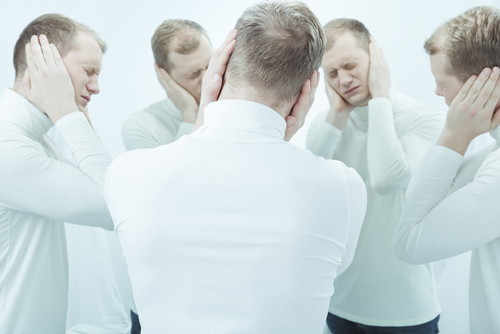
What Can Worsen Alcohol Withdrawal Symptoms?
The risk of developing alcoholic hallucinosis is heightened in individuals who engage in prolonged heavy drinking and consume other substances, such as cocaine, methamphetamines, and psychedelic drugs like LSD. Other factors that can worsen alcohol withdrawal symptoms and alcoholic hallucinosis include:
- Genetics
- Type of alcohol
- Pre-existing or co-occurring mental health disorders
- Age of a person when an alcohol addiction starts
Alcohol Hallucinosis Vs. Alcohol-Related Psychosis
The terms alcohol hallucinosis and alcohol-related psychosis are frequently used interchangeably, as they both arise during episodes of acute intoxication, alcohol withdrawal, and chronic alcohol abuse involving the presence of hallucinations. However, alcohol-related psychosis encompasses not only hallucinations but also delusions, along with inappropriate behaviors and disorganized thinking.
Alcohol Hallucinosis Vs. Delirium Tremens (DTS)
Alcohol-induced hallucinations and delirium tremens are both severe conditions that arise from sudden cessation following excessive alcohol consumption. They exhibit overlapping symptoms, including hallucinations. However, delirium tremens encompasses additional physical symptoms distinct from alcohol hallucinosis, such as severe tremors, agitation, fever, rapid heart rate, and confusion. Delirium tremens is regarded as a more severe manifestation of alcohol withdrawal, typically emerging within 48 to 72 hours after the last drink.
Alcohol Hallucinosis Vs. Wernicke-Korsakoff Syndrome
Alcohol hallucinosis and Wernicke-Korsakoff syndrome, while both associated with heavy alcohol consumption, have distinct characteristics and underlying factors. Wernicke-Korsakoff syndrome (wet brain) is caused by a severe deficiency of thiamine, which is a result of chronic alcohol abuse. Thiamine is crucial for proper brain function, and its deficiency leads to neurological impairments. While thiamine deficiency can contribute to alcohol hallucinosis, it is not the primary cause. Wernicke’s encephalopathy, the initial stage of the syndrome, is characterized by confusion, ataxia, and ocular abnormalities. If left untreated, it can progress to Korsakoff syndrome, marked by severe memory loss, disorientation, confabulation, and long-term brain damage.
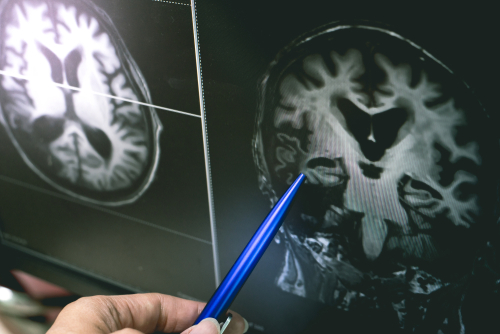
How To Treat Alcohol Hallucinosis
Alcohol-induced hallucinations are usually temporary and can be treated in a professional medical setting. Individuals experiencing alcoholic hallucinations may need to stay in a hospital or 24-hour medical facility where medical professionals create a calm environment for patients with alcoholic hallucinations by placing them in a quiet, dark room with minimal sensory stimulation.
In some cases, mild sedation may be required to help manage the symptoms, especially during life-threatening alcohol withdrawal. Additionally, since nutritional deficiencies often accompany alcohol addiction and withdrawal, healthcare providers offer nutritional support through dietary adjustments and supplements to restore the body’s balance.
Once an individual has gone through detox, the next step should be attending an addiction treatment program. These programs can address the underlying causes of alcohol misuse through different behavioral therapy methods like cognitive behavioral therapy or dialectical behavior therapy. Without these programs, individuals who detox from alcohol but slowly or quickly find themselves drinking again, furthering mental and physical health problems.
Contact Louisville Recovery Center
If you or a loved one is experiencing alcohol-induced hallucinations, contact Louisville Recovery Center. Our approach centers around holistic treatment, prioritizing the individual’s well-being as a whole rather than solely addressing the addiction. We believe in tailoring a customized treatment plan that specifically caters to each client’s unique needs and goals. Our dedicated team is committed to meeting you at your current stage of recovery and supporting you throughout your entire recovery journey.


